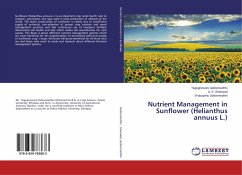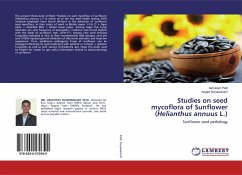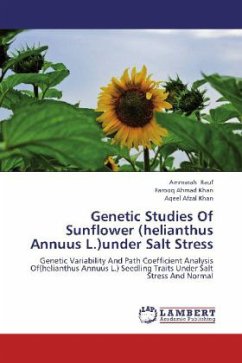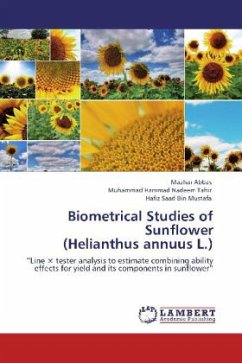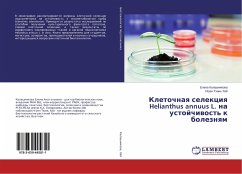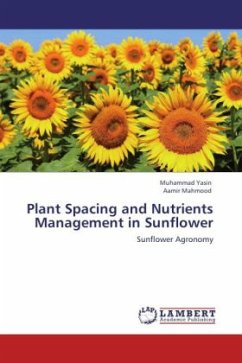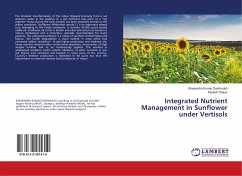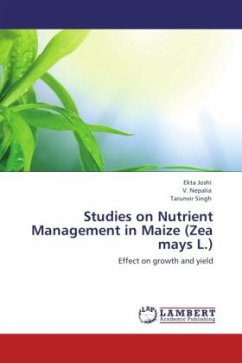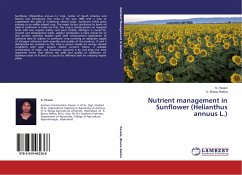
Nutrient management in Sunflower (Helianthus annuus L.)
Versandkostenfrei!
Versandfertig in 6-10 Tagen
36,99 €
inkl. MwSt.

PAYBACK Punkte
18 °P sammeln!
Sunflower (Helianthus annuus L.) crop, native of South America and Mexico was introduced into India in the year 1969 with a view to supplement the yield of traditional oilseed crops. Sunflower holds great promise as an edible oilseed crop. The major factors attributed to lower oil yield of sunflower in India are that, the crop is mostly grown on marginal lands with low organic matter and poor fertility. Nitrogen is crucial for growth and development while, sulphur fertilization is most critical for oil and protein synthesis besides seed yield enhancement. Application of optimum dose of sulphur...
Sunflower (Helianthus annuus L.) crop, native of South America and Mexico was introduced into India in the year 1969 with a view to supplement the yield of traditional oilseed crops. Sunflower holds great promise as an edible oilseed crop. The major factors attributed to lower oil yield of sunflower in India are that, the crop is mostly grown on marginal lands with low organic matter and poor fertility. Nitrogen is crucial for growth and development while, sulphur fertilization is most critical for oil and protein synthesis besides seed yield enhancement. Application of optimum dose of sulphur to sunflower crop receiving an adequate supply of nitrogen enhances both quantity and quality of the produce. N and S deficiencies are common as the crop is grown mostly on energy starved conditions with poor organic matter content. Hence, a suitable combination of major and secondary nutrients is by and large the most important factor that affects the yield and quality of sunflower oil. Optimum dose of N and S is crucial for different soils for realizing higher yields.



